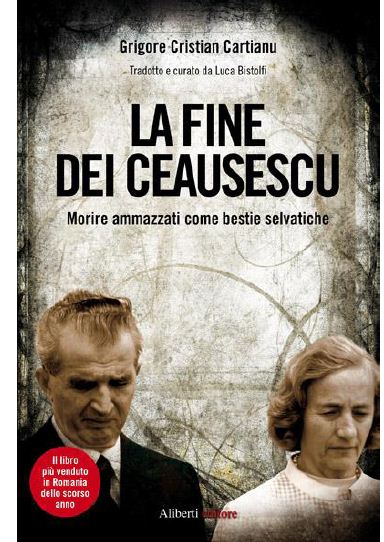Helsinki 40 Years After: International Reordering and Societal Change, 1975-1990
Université Sorbonne Paris Cité (SPC), December 10-12, 2015
The deadline for proposals is May 15, 2015.
Scientific committee: Nicolas Badalassi (Université de Bretagne-Sud), Frédéric Bozo (Université Sorbonne Nouvelle/SPC), Sophie Cœuré (Université Paris-Diderot/SPC), Anne-Marie Le Gloannec (Sciences Po/SPC), Gottfried Niedhart (Universität Mannheim), Evguenia Obitchkina (MGIMO, Moscow), Marie-Pierre Rey (Université Panthéon-Sorbonne), Sarah Snyder (American University, Washington), Anne de Tinguy (INALCO/Sciences Po/SPC)
Presentation
Ever since its signing 40 years ago, the Helsinki Final Act has been at the heart of political and historical controversies. While at the time some saw it as an instrument designed to preserve the European status quo, today it is widely perceived as a major contribution to the end of the Cold War and the disappearance of the Soviet bloc. The Final Act consecrated human rights and self-determination, and it established new standards in the circulation of persons, ideas, and information. For the first time individuals were becoming the focus of international negotiation. For nearly two decades, the CSCE process served as a permanent framework for East-West negotiations on a variety of subjects, in which discussions involved not only relations between states, but also between peoples. This has led some observers to conclude that the Final Act sapped the “Westphalian” order and heralded a new paradigm of international relations, in which the interaction between diplomacies and societies figured prominently.
While Western diplomats who took part in the CSCE negotiated in the hope of bringing about societal change in Eastern Europe, in particular through increased cultural exchanges and personal contacts, Eastern dissidents called for the implementation of the Final Act, giving rise after 1975 to multiple “Helsinki groups” within the Eastern bloc, including the USSR. In spite of Soviet attempts to thwart this process through repressive measures, the interactions between diplomacies and societies deepened continuously over the following decade and a half, within or without the CSCE framework, but always in relation with it (e.g. regarding the role of dissidents, the issue of Soviet Jews, or the diffusion of Western culture beyond the iron curtain.) Although the Cold War reemerged in the late 1970’s and early 1980’s, the CSCE follow-on meetings provided unique occasions to strengthen the synergy between diplomatic activity and societal transformation, culminating in 1986 when NGOs were allowed to participate in CSCE official discussions.
Twenty five years after the end of the Cold War, this conference will seek to evaluate the reality of this interaction between diplomacies and societies during and after the Helsinki conference. How and to what extent did this interaction take place? Did the CSCE effectively respond to the democratic aspirations of European peoples and help to alleviate the practical obstacles they had to face? What kind of influence did human rights activists, churches, intellectuals, and NGOs from East and West have on the Helsinki conference and on the Belgrade, Madrid, and Vienna follow-on negotiations? What was their impact on the effective implementation of the Final Act after 1975 against the backdrop of renewed East-West tensions? What was the input of international and intra-European networks of intellectuals, scientists, artists, entrepreneurs, publishers, diplomats, students, teachers, journalists, etc. in the process that led to the liberalization, the transformation, and then the dissolution of the communist bloc? How and to what extent did participating states try to enhance or to thwart the emergence of the Helsinki paradigm? How did the populations of Eastern Europe and the Soviet Union perceive the CSCE and its results? Did they believe the Helsinki Final Act and its sequel could positively influence their personal circumstances and change the status quo?
Topics to be addressed
We invite papers (in English or French) dealing with all aspects of the foregoing problematic over the whole period. Contributions examining links between the foregoing issues and more classical diplomatic or security issues are also welcome.
We would also welcome contributions exploring the relevance of the CSCE process beyond the European “core” (e.g. the Mediterranean and the Middle East, Asia-Pacific, the Western hemisphere, etc.)
Finally, we also encourage more “methodological” submissions contributing to the elucidation of the subject in a more general way, whether in historical or in theoretical terms (e.g. IR theory, security studies, sociology, law, gender studies, etc.) as well as contributions examining the legacy of the CSCE process and its interpretations up to now.
Procedure
The organizers would be happy to consider additional proposals which potential contributors believe would fit in the overall intellectual framework of the conference.
The deadline for proposals is May 15, 2015. Proposals should include a title, a one page outline and a one page CV of the author with a list of major publications. Following the acceptance of the proposals (before the end of June), authors will receive editorial guidelines (e.g. format of the papers). In order for the papers to be available to conference participants beforehand, authors will be asked to submit their draft papers by November 20, 2015.
Depending on the results of the CFP, the conference organizers may plan to publish a selection of the papers as an edited volume or a special issue of a journal. In that case, and in order for the publication to proceed swiftly, a deadline for the submission of final drafts of selected papers will be fixed.
Proposals should be emailed to csce2015@univ-paris3.fr
Participants will receive reimbursement for their transportation on the basis of economy fare as well as accommodation during their stay in Paris for up to three nights













